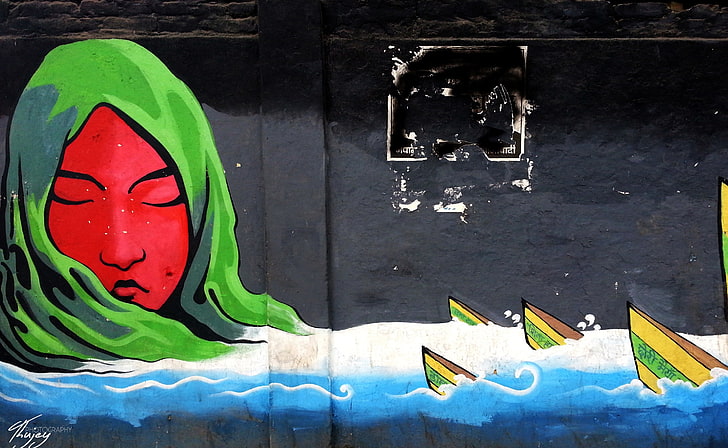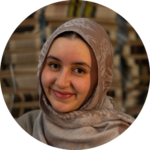The faces of women
To limit the scope of womanhood is to limit the scope of humanity.
In a land where the sea met the sun and calls of prayer echoed in every corner, Melouka was born. There, she glossed over the books that lay in her room and dreamt of stories in far away lands. Melouka was one of four girls and three boys, with whom she spent her evenings running around her house, their mother’s scolding filling the air of the courtyard. She often sat close to her father, listening to his gritty tales of the past. Her youth was guarded, the walls of her home protecting her innocence from the war that waged on her lands—her lands of Algeria.
Amongst the bullets and cries of her people, Asma, a widow and mother of an orphaned child, lived differently. Asma spent her days on the run, with men and women whose lives were no different than hers. They were angry, driven by fury. At night, she slept with a rifle clutched to her chest, dreaming of her sergeant’s orders and the French planes that flew above and blood seeping through the ground and the mothers who ached for their children’s return. One day—a day among the many years of war—Asma was caught by a French soldier. The bullet that rested in her thigh throbbed, but the hopes of survival pained her mind more. Her fingers rolled around the ring given to her by her late husband, for it was the only thing left she owned. Not the clothes she wore, not the land she stood on, and not even her name.
When the war was over, a woman by the name of Hayat lived in Algiers, the memory of loss sour in her mind. Her father called her Hayat, life, because she lived, survived. She was a mother of seven, a wife, and a typist. When her children went to sleep, she sprawled on the nearest couch and read stories of romance and poetry. She was fond of songs that reminded her of her youth and would hum the rhymes her mother once whispered at home. She raised her children with stories of her parents and youth in Oran, taught them how to hold a pen and design a smile. She was named Hayat because despite the despair, she brought life.
When the trees grew old and the walls sprouted cracks, an old woman sat by the window and watched her husband sneak a handful of sweets to their granddaughters, placing a finger to his lips and motioning to his wife. The girls giggled, glancing at their grandmother, who bore a grin and jokingly closed her eyes. They called her Mémé. Mémé often sat by the heaters of her home, needle and thread in hand and a dress in mind for the girls. When the oldest of the young girls could not sleep at night, the girl would tiptoe to the dimly lit kitchen where Mémé sat heating up two glasses of milk. She would sit the little girl down on her lap and they would talk about the past and future and for a moment, Mémé was Melouka again, a young girl who loved books and dresses and racing with her sisters.
Melouka, Asma, Hayat, and Mémé. The stories of four women, yet it was the life of one that I knew—the life of my late grandmother. She was both a soldier and a grandmother, a mother, and a daughter. She was so many lives and so many stories and yet we are told that women are born to be quiet voices, men’s shadows. Her story is of the many that were repressed and sworn as secrets when women like my grandmother were the heart of the Algerian revolution.
Our world continues to deem womanhood to be weak, even when our words feminize the sun and earth and sea, even when the hands of women birth revolutions and foster nations. Today, women in Palestine, Ukraine, Iran, and Afghanistan alike stand to be the heart of revolution. When the world fashions women to a single story, to a single character, a single voice, it erases a history of empires and phenomena we ignorantly teach our children. To limit the scope of womanhood is to limit the scope of humanity. It is not only our duty to learn the boundlessness of womanhood but to celebrate and set it as our societies’ foundations. Afterall, women are the core of life.
Associate Opinion Editor (Volume 50) — Yasmine is a third-year student, majoring in History and Anthropology. Her writing is best described as sometimes sarcastic, sometimes radical, and always an excuse to bring up her heritage (and colonialism). She hopes her work with The Medium will inspire conversations, debates, and a path to abandon our deeply rooted stubbornness. In her spare time, Yasmine enjoys reading, knitting, arguing with uncles on politics, and fangirling.



Such strong words! Very well said!